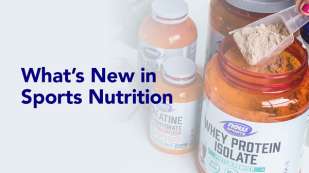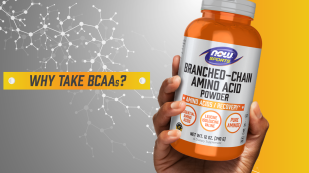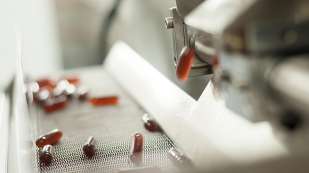Use coupon code CARDAMOM with your purchase of $40 or more for a free†
Cardamom OilCarnitine Testing and Purity

Carnitine and its benefits
Carnitine (L-carnitine) is a vitamin-like amino acid derivative that plays an important role in energy production by transporting long-chain fatty acids into the mitochondrial matrix to be burned for energy.* This function may support physical performance and weight management.* Carnitine and its esters, such as acetyl-L-carnitine and propionyl-L-carnitine, have received growing attentions for their uses in cardiovascular and neurological health.*
Carnitine biochemistry
Carnitine, along with its natural ester acylcarnitine, forms a critical part of your body’s natural carnitine pool. Carnitine is found in various tissues of most mammals. The total amount of carnitine in the human body at any given time is about 20 grams, of which 98% is found in the skeletal and cardiac tissues, 1.4% in the liver and kidneys and 0.6% in extracellular fluids and other tissues.
Of all these carnitine pools in the human body, about 25% is produced from the amino acids lysine and methionine, and about 75% is derived directly from dietary sources such as meat, poultry, fish, and milk, with smaller amounts found in wheat and avocados. Individuals who don’t consume a lot of meat and dairy products tend to have a lower carnitine intake than average.
L-carnitine versus D-carnitine
At NOW we use the ‘L’ form of carnitine, a more desirable form, and we use a stabilized form known as carnitine tartrate since carnitine in powder form is highly susceptible to moisture. We also utilize special, moisture-absorbing packets in many of our carnitine products to keep moisture to a minimum.
L-carnitine has a sister form, D-carnitine, which may form as an impurity when producing the natural ‘L’ form. The ‘D’ form can have considerable side effects or even toxic influences on biochemical processes because it may inhibit an enzyme called carnitine acetyl transferase, which may actually deplete your body’s L-carnitine reserves.
How we detect D-carnitine
Identification and separation of any undesirable D-carnitine is vital to the quality of our carnitine formulations and assure their safety and proper function. To verify the quality of our carnitine products NOW utilizes a highly sensitive scientific method called a high performance liquid chromatography (HPLC). This testing method allows for simultaneous separation of L-carnitine, acetyl-L-carnitine and various impurities, which include D-forms of carnitine.
The content of D-carnitine allowed in the European Pharmacopoeia and United States Pharmacopoeia is limited to about 4%. Our HPLC method has high sensitivity and selectivity, allowing for the detection of an impurity in the D-form at less than 0.5%.
By utilizing this method to verify the potency and purity of our L-carnitine products, NOW ensures the best quality L-carnitine products for our customers, while avoiding potentially harmful impurities.
*These statements have not been evaluated by the Food and Drug Administration. These products are not intended to diagnose, treat, cure or prevent any disease.
References:
B.A.B Bowman, Nutr. Rev., 50 (1992) 142
T. Bohmer, Biochim. Biophys. Acta 343 (1974), p. 551
R. Ferrari, C. Ceconi, S. Curello, E. Pain and O. Visioli, Mol. Cell. Biochem., 88 (1989) 161
M. De Grandis, C. Mezzina, A. Fiaschi, P. Pinelli, G. Bazzato, M. Morachiello, J. Neurol. Sci., 46 (1980) 365
D.B. Shennan, A. Grant, R.R. Ramsay, C. Burns, V.A. Zammit, Biochim. Biophys. Acta 1393 (1998) 49











